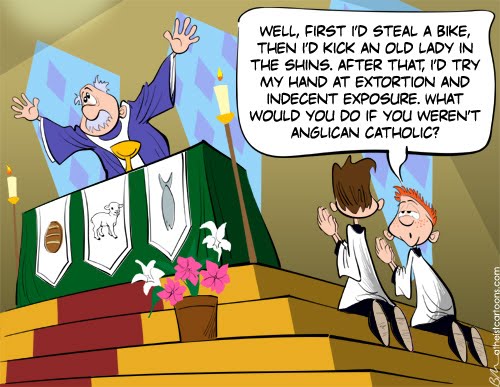Around 2 or 3 years ago, I asked an atheist friend of mine, “If you don’t believe in God, what’s stopping you from going out, killing people, raping, stealing and doing all sorts of nasty things?”
He countered by saying, “Are you telling me that the only thing stopping you from doing those things is your belief in God? If you suddenly found out tomorrow that God didn’t exist, are you suddenly going to change into a different person and suddenly go on a crime spree? There are good or bad people whether they believe in whatever God or not.”

I then said, “But some say that belief in God provides some sort of moral compass. There is the fear of hell or the promise of reward in an afterlife that guides you to do good here on earth.”
He replied, “Actually, the promise of an afterlife may also be a reason for people not to take this life too seriously, because they’ll think they can always ask for forgiveness later and still enjoy eternal happiness. For me, however, I believe that this is the only life I have. I have one life and I want to make sure that I don’t waste it and I live it fully. Now, I will surely think twice before committing a crime because if I get caught, I might spend the next 10 or 20 years of life in prison. And that would be a huge waste of the only life I have. Not believing in an afterlife actually gives me more incentive to be the best person I can be because it’s the only shot I have.”
Growing up a Christian had made me see reality in black and white terms. There was either good or evil. You either went to heaven or hell. You were either the child of God or the child of Satan.
So words like “atheist,” “godless,” “heathen” and so on were words that had very negative connotations. I had a very hard time thinking of an atheist as someone being good. To call someone “godless” usually meant that person was unspeakably evil. In fact, the Random House Dictionary lists “wicked, evil, sinful” as secondary meanings of the word. It just goes to show how our language is still loaded with thousands of years of theistic prejudice.
However, that short conversation gave me a lot to reflect on and I have slowly unlearned my aversion to those terms. Just recently, someone asked me, “So when did you become an atheist?”
Before, I would have defended myself and said that I wasn’t an atheist. That I was more of an agnostic. But I realized that time that I didn’t really care any more if he thought I was an atheist or not. I guess in his book, if I didn’t believe in his version of God, then I’m an atheist. So be it. I’m a godless heathen, and that’s really not such a bad thing when you look at all the “godly” politicians invoking his name while stealing the country blind. There are much worse things to be.
Originally published in Sunstar Davao.
Andy Uyboco is a businessman, trainer and speaker. Send me your thoughts at andy@freethinking.me. View previous articles at www.freethinking.me.




 Tuburan is a Visayan word meaning “wellspring,” reflecting the school’s desire “to pave the way for a wellspring of independent, community-based schools in Mindanao offering a culturally transformative curriculum and pedagogy.” But I see it as more than that. I see it as a dream of two courageous souls who truly want to make an impact in the community.
Tuburan is a Visayan word meaning “wellspring,” reflecting the school’s desire “to pave the way for a wellspring of independent, community-based schools in Mindanao offering a culturally transformative curriculum and pedagogy.” But I see it as more than that. I see it as a dream of two courageous souls who truly want to make an impact in the community.






